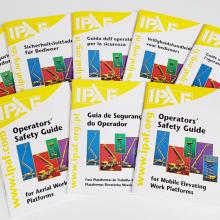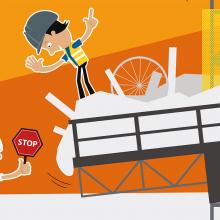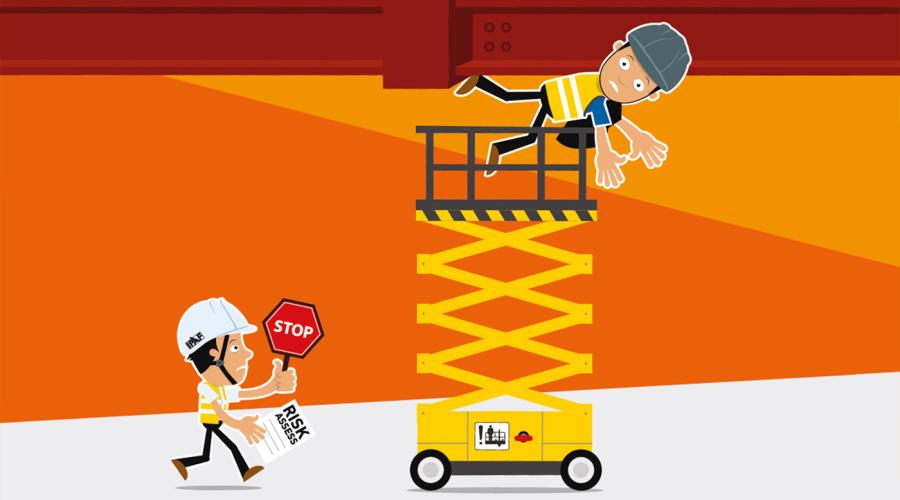Search
-
-
-
As part of its Women in Powered Access initiative, IPAF has created a mentoring scheme for women in the powered access Industry who are looking for extra support and guidance to sustain and promote their career within.
-
5841: Is it appropriate to exit the MEWP platform when working at height?
No, unless a rigorous risk assessment carried out as part of planning the job indicates that this is the safest and most effective means of accessing a particular location, taking into account the availability on site of other more suitable access equipment and the practicability of providing the same within the required timescales for the task to be carried out.
See IPAF's technical guidance E2 on exiting the platform at height and this extract from BS 8460 (the British Standard on “Safe use of MEWPs – Code of practice”) on the subject.
-
-
-
-
-
-
-
-
-
5823: Do I need training on a small static vertical machine without drive, also known as a Push Around Vertical (PAV)?
Yes, training on a PAV is a direct legal requirement, and there is a half-day course for this. If you have a valid licence with Static Vertical (1a) or Mobile Vertical (3a), you will only require familiarisation on the machine, which should be recorded in your IPAF log book, or through the ePAL app.
This is due to the PAV being a simpler version of a 1a which operates in the same way as a 3a but without the ability to drive.
This principle cannot be applied to any other categories due to the operational methods and risks differing significantly between the categories. For example, if an operator is trained on a 1b only, this MEWP cannot be driven elevated where a 3b can, and the operator would not have been trained on that skill. Similarly, if they are trained on a 3b only, they have not been trained on setting up a 1b effectively on spreader pads.
See IPAF technical guidance F1 on familiarisation.
-
IPAF's mission is to promote and enable the safe use of powered access worldwide. This includes mobile elevating work platforms (MEWPs), mast climbing work platforms (MCWPs) and construction hoists (CHs).
-
If you are new to powered access, this page offers some useful starting points and background information.
-
-
-
-
-
-
-
-
IPAF supports safety professionals by providing a hub for safety, good practice, efficiency and technical know-how. Here you will find links to relevant documents, guidance, toolbox talks, and information to support you and your colleagues to work safely when using powered access.
-
-
5838: Does the operator course include harness training?
The IPAF MEWP Operator Training course is specifically designed to train people to operate MEWPs however, as a part of the content the course includes a short section of basic harness training on these areas:
- Before use: Pre-use checks of a harness and lanyard, checking for proof of Statutory Inspection
- Harness wearing: How to put a harness on
- Harness adjustment: Ensuring candidates have no slack in a correctly fitted harness
- Lanyard adjustment: Adjusting for machine and candidate
- Attachment to MEWP: Designated anchor point and karabiner locked
- IPAF technical guidance H1 on harnessesHarness inspection is not covered in the IPAF MEWP Operator Training course.
For any person that needs comprehensive harness training, IPAF offers awareness level harness training suitable for everyone, user level training for those that will use a harness in a MEWP, and inspector level training for those that will be required to conduct Statutory Inspections of PFPE for use in a MEWP. Click here to learn more




